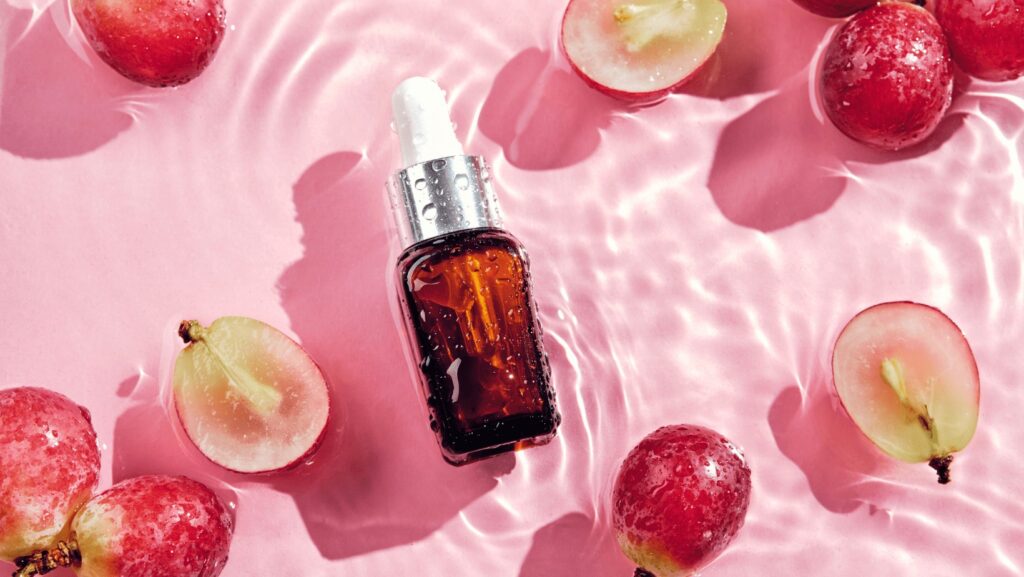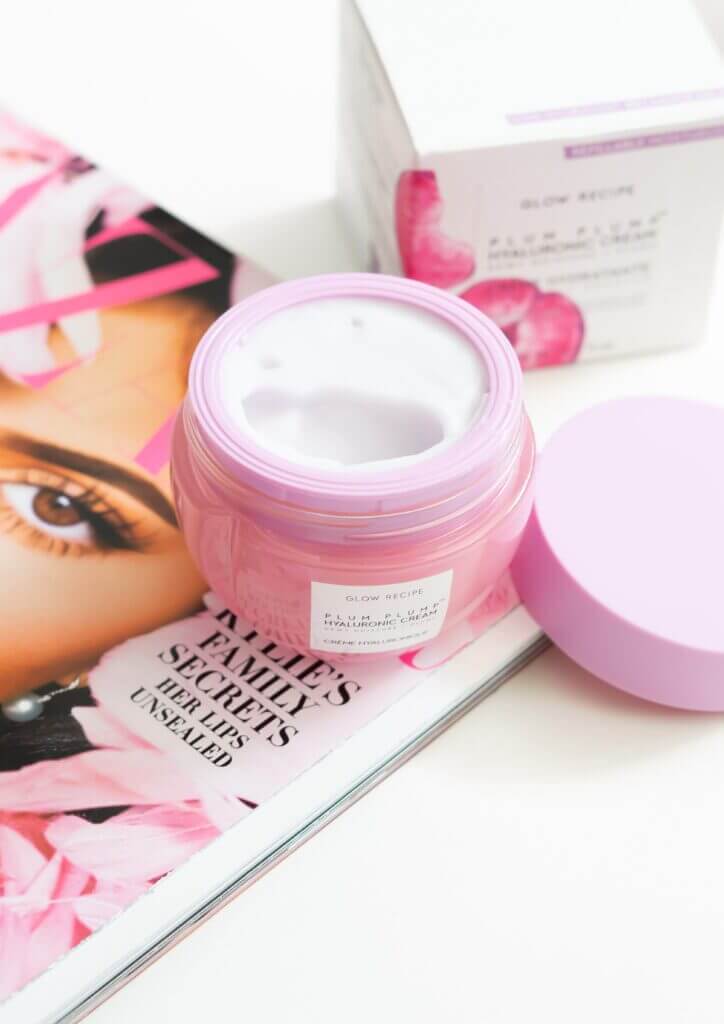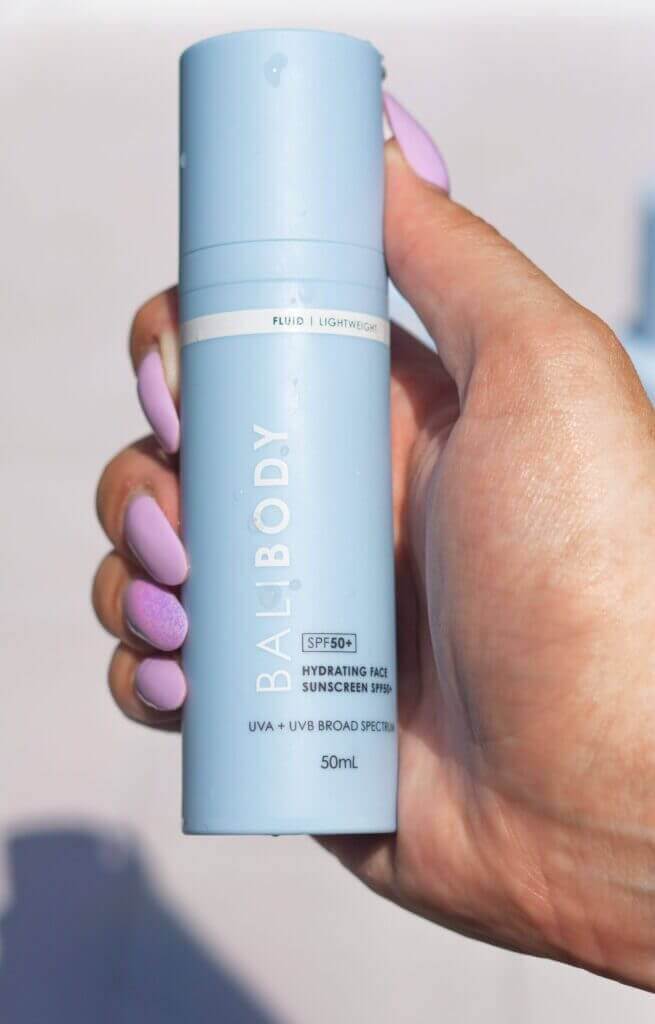
Grapeseed oil has been used for centuries to help improve the health and appearance of the skin. It’s packed with antioxidants, vitamins, minerals, and essential fatty acids that can help nourish and protect your skin from environmental stressors.
In this article, we will explore the many benefits of grapeseed oil for the skin, including its ability to reduce inflammation, prevent acne breakouts, keep wrinkles at bay, and more!
So if you’re looking to give your skincare routine a healthy boost, read on to discover why grapeseed oil is essential to any natural beauty regimen.
What Is Grapeseed Oil?
Grapeseed oil is a type of vegetable oil extracted from the grapes’ seeds. It is a byproduct of the wine-making process, as the seeds are separated from the grapes during pressing. The oil is extracted from the seeds through a process called cold-pressing, which involves mechanically pressing the seeds to release the oil without using heat or chemicals.
Grapeseed oil has a light, neutral flavor and a high smoke point, making it a popular choice for cooking and baking. It is also used in cosmetics and skincare products due to its moisturizing properties and high concentration of antioxidants.
Sources And Forms Of Grapeseed Oil
Grapeseed oil is primarily produced in countries that are major wine producers, such as Italy, Spain, France, and the United States. However, it can also be found in other parts of the world where grapes are grown for consumption or other purposes. Grapeseed oil is available in a variety of forms, including:
- Refined Grapeseed Oil: This is the most common type of grapeseed oil and is often used for cooking, baking, and frying. It has a light, neutral flavor and a high smoke point, making it ideal for high-heat cooking.
- Cold-Pressed Grapeseed Oil: This type of grapeseed oil is extracted using a process that doesn’t involve heat or chemicals. It retains more of the natural flavor and aroma of the grapes, making it a good choice for use in salad dressings, marinades, and dips.
- Organic Grapeseed Oil: This is grapeseed oil that has been produced without the use of synthetic pesticides or fertilizers. It is often used in organic and natural skincare products.
- Expeller-Pressed Grapeseed Oil: This type of grapeseed oil is produced using a mechanical press and doesn’t involve the use of chemicals or solvents. It is often used in natural and organic products.
- Blended Grapeseed Oil: This type of grapeseed oil is a blend of refined and cold-pressed oils. It has a milder flavor than cold-pressed oil and a higher smoke point than unrefined oil. It is often used in commercial food products.
Overall, the different types of grapeseed oil have varying properties and use, making them suitable for a wide range of applications.

Benefits Of Grapeseed Oil For The Skin
Grapeseed oil can be a beneficial ingredient in skincare products, helping to moisturize, protect, and rejuvenate the skin. Grapeseed oil has several potential benefits for the skin, including:
Antioxidant
Grapeseed oil is rich in antioxidants, such as vitamin E and polyphenols, which can help to protect the skin from damage caused by free radicals and environmental stressors. Free radicals are unstable molecules that can damage cells and contribute to premature aging, such as fine lines and wrinkles.
The antioxidants in grapeseed oil can help to neutralize free radicals and prevent them from causing further damage. Polyphenols are also known to have anti-inflammatory properties, which can further benefit the skin.
Moisturizing Properties
Grapeseed oil is an excellent natural moisturizer for the skin due to its lightweight texture, fatty acids that are essential for maintaining healthy skin, and ability to be easily absorbed. It can help to hydrate the skin without leaving a greasy residue, making it suitable for all skin types, including oily and acne-prone skin.
These fatty acids help to strengthen the skin’s natural barrier function, preventing moisture loss and keeping the skin soft and supple.
Unlike other oils, such as coconut oil, grapeseed oil has a lightweight texture that is easily absorbed by the skin without leaving a greasy residue. This makes it an excellent choice for all skin types, especially those with oily or acne-prone skin.
Anti-Inflammatory Properties
Grapeseed oil contains linoleic acid, an omega-6 fatty acid with anti-inflammatory properties. This can help to soothe and calm the skin, reducing redness and irritation. Inflammation can also contribute to the development of acne and other skin conditions, so reducing inflammation can be beneficial for overall skin health.
Linoleic acid can help to reduce inflammation in the skin, calming redness and irritation. In addition to its anti-inflammatory properties, linoleic acid is essential for maintaining the skin’s barrier function and preventing moisture loss.
Anti-Aging Properties
The antioxidants in grapeseed oil can help to reduce the signs of aging, such as fine lines and wrinkles. Free radicals and other environmental stressors, such as UV radiation and pollution, can damage collagen and elastin in the skin, leading to loss of firmness and elasticity.
The antioxidants in grapeseed oil can also help to reduce the signs of aging, such as fine lines and wrinkles. Antioxidants can even help to protect collagen and elastin from damage and can even stimulate their production. Grapeseed oil is also rich in proanthocyanidins, which have been shown to promote collagen synthesis and improve skin elasticity.
Acne-Fighting Properties
Grapeseed oil has a low comedogenic rating, meaning it is unlikely to clog pores and cause acne. It is also rich in linoleic acid, which has been shown to help regulate sebum production and prevent the formation of acne.
The antimicrobial properties of grapeseed oil can also help to fight acne-causing bacteria, reducing the risk of breakouts.
Additionally, grapeseed oil is rich in linoleic acid, which is a type of omega-6 fatty acid that is commonly deficient in the skin of people with acne. Adding linoleic acid to the skin can help to balance sebum production and prevent clogged pores.

Benefits Of Grapeseed Oil For Hair
Grapeseed oil is not just beneficial for the skin, it can also provide several benefits for the hair. Here are some of the benefits of using grapeseed oil for hair:
- Moisturizing: Grapeseed oil is a lightweight oil that can penetrate the hair shaft easily, making it an excellent natural moisturizer for the hair. It contains fatty acids and vitamin E, which can help to hydrate and nourish the hair, preventing dryness and breakage. This particularly benefits people with dry, brittle, or damaged hair.
- Strengthening: Grapeseed oil is rich in antioxidants and vitamin E, which can help to strengthen hair follicles and prevent hair loss. The antioxidants in grapeseed oil can also protect the hair from damage caused by free radicals and environmental stressors, such as UV radiation and pollution. Additionally, the fatty acids in grapeseed oil can help improve the hair’s overall health and quality, making it stronger and more resilient.
- Conditioning: Grapeseed oil can be used as a natural conditioner for the hair, helping to improve its texture and shine. It contains natural emollients that can soften and smooth the hair, making it easier to manage and style. Grapeseed oil can also help to reduce frizz and flyaways, giving the hair a sleek and polished look.
- Scalp health: Grapeseed oil has anti-inflammatory properties that can help to soothe and calm an irritated scalp. It can also help to reduce dandruff and other scalp conditions, promoting a healthier scalp environment for hair growth. Additionally, the fatty acids in grapeseed oil can help to regulate sebum production, preventing excessive oiliness or dryness of the scalp.
- Heat protection: Grapeseed oil can also be used as a natural heat protectant for the hair. Applying to the hair before heat styling can help protect it from damage caused by high temperatures, such as split ends and breakage. This mainly benefits people who frequently use hot tools like curling irons, straighteners, or hair dryers.
How To Use Grapeseed Oil For The Skin
Grapeseed oil is a great addition to your skincare routine, as it has many beneficial properties. Grapeseed oil can help moisturize and nourish skin while providing antioxidant protection against environmental pollutants.
To use grapeseed oil on your skin, start by cleansing the area with your favorite cleanser and patting it dry with a soft towel.
Then apply 1-2 drops of the grapeseed oil onto your fingertips and massage gently into the skin in circular motions until fully absorbed. You should be able to reap the benefits of this natural skincare product within just a few days!
The Best Skincare Products With Grapeseed Oil
There are many skincare products containing grapeseed oil that are available for purchase. Here are a few great options:
View more products with grapeseed oil.
- Caudalie Vinoperfect Radiance Serum: This serum contains grapeseed oil and other natural ingredients, such as vinifera and olive squalane, to help brighten and even out the skin tone. It also helps to reduce the appearance of dark spots and promotes a more radiant complexion.
- Herbivore Botanicals Lapis Facial Oil: This facial oil contains a blend of natural oils, including grapeseed oil, to help balance and clarify the skin. It also contains blue tansy and jojoba oil to soothe and hydrate the skin.
- Kiehl’s Midnight Recovery Concentrate: This facial oil contains a blend of botanical oils, including grapeseed oil, to help replenish and restore the skin’s natural moisture barrier. It also contains lavender essential oil to help promote relaxation and improve the quality of sleep.
- Drunk Elephant Virgin Marula Luxury Facial Oil: This facial oil contains pure marula oil, which is extracted from the kernels of the marula fruit, as well as a blend of other natural oils, including grapeseed oil. It helps to nourish and hydrate the skin, while also providing antioxidant protection.
- Sunday Riley Juno Antioxidant + Superfood Face Oil: This facial oil contains a blend of cold-pressed seed oils, including grapeseed oil, to nourish and hydrate the skin. It also contains antioxidants and vitamins to help protect the skin against environmental stressors and promote a healthy, radiant complexion.
- Farmacy Green Clean Makeup Removing Cleansing Balm: This cleansing balm contains grapeseed oil as one of its main ingredients, along with other natural oils such as sunflower and ginger root oil. It effectively removes makeup, dirt, and impurities from the skin while leaving it soft, hydrated, and nourished. The formula also includes papaya enzymes to gently exfoliate the skin and provide a brightening effect.
Get The Most Out Of Your Grapeseed Oil Treatment
Grapeseed oil is a popular choice for skin care treatments due to its antioxidant and anti-inflammatory properties. It’s a light oil that won’t clog pores, making it suitable for all skin types.
Additionally, grapeseed oil helps protect the skin from environmental damage while reducing signs of aging like wrinkles and fine lines. To get the most out of your grapeseed oil treatment, start by cleansing your face with a mild cleanser before applying the oil to dampened skin.
Massage gently in circular motions until fully absorbed, then rinse off any residue with warm water. Finish off your skincare routine with an SPF moisturizer or sunscreen for the best results!

Potential Side Effects On The Skin When Using Grapeseed Oil
Grapeseed oil is a popular ingredient in many skincare products due to its moisturizing and healing properties. However, it’s important to remember that using this oil can have potential side effects on the skin.
Some people may experience an allergic reaction or breakouts if they use too much of it, so make sure you start with a small amount at first. Additionally, some people may find their skin overly oily when using grapeseed oil, so it’s best to consult your doctor before trying any new product.
Does Grapeseed Oil Clog Pores?
To come straight to the point, Grapeseed Oil does not clog pores. Grapeseed Oil is rated a 1-2 on the comedogenic rating system. This means that it has a low chance of clogging pores.
Common ingredients in skincare products are rated on a scale of 0–5. The higher the number is, the higher the chances are that your pores may get clogged.
Generally, values of 2 and below are unlikely to cause clogged pores. So products containing ingredients with these scores are considered non-comedogenic.
Alternatives To Using Grapeseed Oil On The Skin
Grapeseed oil is a great natural skincare product that can help moisturize, protect, and heal your skin. However, there are plenty of other alternatives out there when it comes to oils for skin care.
Coconut oil is a popular alternative because it contains lauric acid and vitamin E, which helps to soothe inflammation and reduce redness.
Other options include almond oil, avocado oil, or even olive oil – each of these has its own unique benefits, such as providing antioxidant protection against environmental damage or fighting aging signs like wrinkles and fine lines.
Conclusion On Benefits Of Grapeseed Oil For The Skin
Grapeseed oil has several benefits for the skin, including moisturizing, antioxidant, anti-inflammatory, anti-aging, and acne-fighting properties. These benefits make it a valuable ingredient in skincare products, especially those designed for oily or acne-prone skin.
However, as with any skincare ingredient, it’s important to patch test first and consult with a dermatologist if you have any concerns or preexisting skin conditions.
You May Also Like
Another post on this topic you might find helpful is the Benefits Of Castor Oil For The Skin. I’ve also written about the Benefits Of Argan Oil For The Skin, so feel free to check that out or bookmark it for later!
FAQ
Related Posts



